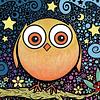Take a photo of a barcode or cover
informative
reflective
medium-paced
challenging
informative
reflective
tense
slow-paced
This book is taking me forever to read.
But anyway, thoughts.
The author's neutrality towards God is incredibly impressive and quite a relief after a few of the works I've read lately. Although I do wish that there were more time spent on non-Abrahamic religions, there just aren't many other major monotheistic ones...
The account of the creation of the Trinity, which I feel like I've read at least four times in different places, really annoyed me... the unknowable paradox of the Trinity, which I had always thought (back in the dizzle) was something basic to Christianity, seems to be just the haphazard result of lots of stupid bickering. And then now that real Christian philosophy dies, we get an oversimplified, anthropomorphisized, really... backwards attempt to package all facets of God into Jesus. The fact is, belief in Jesus as divine and all-encompassing just isn't 'original' or, really, fundamental to Jesus's teachings.
So says I, at least. I'll add more as I think more.
But anyway, thoughts.
The author's neutrality towards God is incredibly impressive and quite a relief after a few of the works I've read lately. Although I do wish that there were more time spent on non-Abrahamic religions, there just aren't many other major monotheistic ones...
The account of the creation of the Trinity, which I feel like I've read at least four times in different places, really annoyed me... the unknowable paradox of the Trinity, which I had always thought (back in the dizzle) was something basic to Christianity, seems to be just the haphazard result of lots of stupid bickering. And then now that real Christian philosophy dies, we get an oversimplified, anthropomorphisized, really... backwards attempt to package all facets of God into Jesus. The fact is, belief in Jesus as divine and all-encompassing just isn't 'original' or, really, fundamental to Jesus's teachings.
So says I, at least. I'll add more as I think more.
This book is taking me forever to read.
But anyway, thoughts.
The author's neutrality towards God is incredibly impressive and quite a relief after a few of the works I've read lately. Although I do wish that there were more time spent on non-Abrahamic religions, there just aren't many other major monotheistic ones...
The account of the creation of the Trinity, which I feel like I've read at least four times in different places, really annoyed me... the unknowable paradox of the Trinity, which I had always thought (back in the dizzle) was something basic to Christianity, seems to be just the haphazard result of lots of stupid bickering. And then now that real Christian philosophy dies, we get an oversimplified, anthropomorphisized, really... backwards attempt to package all facets of God into Jesus. The fact is, belief in Jesus as divine and all-encompassing just isn't 'original' or, really, fundamental to Jesus's teachings.
So says I, at least. I'll add more as I think more.
But anyway, thoughts.
The author's neutrality towards God is incredibly impressive and quite a relief after a few of the works I've read lately. Although I do wish that there were more time spent on non-Abrahamic religions, there just aren't many other major monotheistic ones...
The account of the creation of the Trinity, which I feel like I've read at least four times in different places, really annoyed me... the unknowable paradox of the Trinity, which I had always thought (back in the dizzle) was something basic to Christianity, seems to be just the haphazard result of lots of stupid bickering. And then now that real Christian philosophy dies, we get an oversimplified, anthropomorphisized, really... backwards attempt to package all facets of God into Jesus. The fact is, belief in Jesus as divine and all-encompassing just isn't 'original' or, really, fundamental to Jesus's teachings.
So says I, at least. I'll add more as I think more.
informative
reflective
slow-paced
challenging
informative
reflective
slow-paced
informative
reflective
slow-paced
challenging
informative
reflective
slow-paced
Dang, this book was one of those that literally makes your brain explode. It took me a bit of time to get through (partly because it's so dense) but also because I had to stop so often to marvel at humanity and the creation of organized religion. Moving through history with this book and seeing how humanity's conception of God has changed through the ages was insane for me. I keep moving towards this idea that all religions are merely an attempt to make sense of the divine and this book was the last step I needed to get there. We claim that the divine is incomprehensible and any attempt to make sense of the divine is going to fall way short, yet we continue to grasp at answers with religion. Armstrong says, "The Koran is highly suspicious of theological speculation, dismissing it as self-indulgent guesswork about things that nobody can possibly know or prove." And that's how I feel. We can't know things. We know we can't know things. And to pretend like we can come to some sort of logical explanation for the transcendent is utter nonsense. Speaking about the Vedas, Armstrong says, "It was designed to help people to come to terms with the wonder and terror of existence. It asked more questions than it answered, designed to hold the people in an attitude of reverent wonder." That's what spirituality is about in my opinion. Being in awe of the wonder of the world. We aren't supposed to have answers. Religion may help give you some idea of how others have experienced the divine, but it cannot give you answers. There are no answers. All you can know is your own experience.
Four stars because I think it could have been shorter and less dense. Her writing got kinda boring at some points, but overall the information was rad.
Four stars because I think it could have been shorter and less dense. Her writing got kinda boring at some points, but overall the information was rad.
Absolutely amazing! Very objective, thorough history of the conception if the monotheistic God and how it has effected world history and culture. It was a little dense at times, but overall easy to read and quite informative and enjoyable






